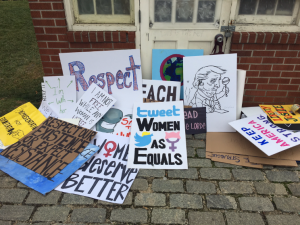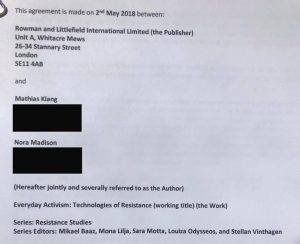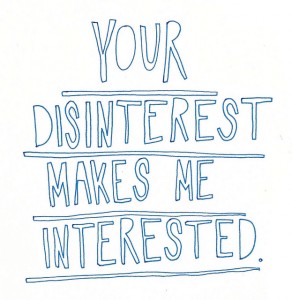There is a very interesting discussion going on at Gawker about whether Twitter is private or public. Here is a representative excerpt:
Most things that you write on Twitter will be seen only by your followers. Most things that you write on Twitter will not be read by the public at large. But that is only because the public at large does not care about most things that you have to say. It is not because the public does not have “a right” to read your Twitter. Indeed, they do. They can do so simply by typing Twitter dot com slash [your name] into their web browser. There, they will find a complete list of everything that you have chosen to publish on Twitter, which is a public forum.
If you do not want your Twitter to be public, you can make it private. Then it will not be public. If you do not make it private, it will be public.
So far, so good. But then there is the bit that made me think.
Because Twitter is public, and published on the internet, it is possible that someone will quote something that you said on Twitter in a news story. This is something that you implicitly accept by publishing something on Twitter, which is public.
This part I find less convincing. Yes, Twitter is public. But does this really mean that everything in the public could be used in any way. Am I supposed to have implicitly agreed to any form of possible, potential use of my material simply because Twitter is public?
No.
From a copyright perspective there is a good case for arguing that my tweets are my property. But then again I would also argue that republishing the tweets falls under fair use or right to quote. Despite this, it’s still a good illustration that public does not mean free-to-use-in-any-way-I-want.
But what are the limits of re-use of Tweets? I would be offended if a militant group of madmen (take your pick) used a tweet of mine (along with my image and user name) on a poster (unlikely scenario, I know). But would I be able to prevent it?
What about using tweets in lectures? Ah yes, its fair use. What about shaming a student by displaying his/her tweets? (Not outlandish it happened here). What about the police shaming drunk drivers? What if a doctor retweets medical information tweeted by a patient? Would this breach medical ethics?
The technology is public (open for all to see). But this mean that the public has the right to do whatever they please with what they see? Even if there is no legal limits to this behavior, there are ethically questionable reuses of tweets.
The point is that when I tweet something there is a small chance that the people who follow me see it. If some of them retweet then there is a chance of others seeing it. But if @stephenfry were to accidentally retweet it – I would achieve internet fame.
My tweets do not achieve internet fame. My tweets exist within a context. Naturally there is no law preventing them from leaving that context but when they do, their meaning may warp beyond their original meaning and purpose. And when this happens – what is the ethical responsibility of the re-tweeter?






